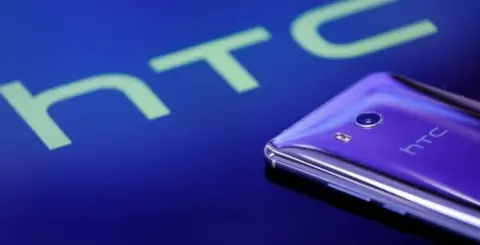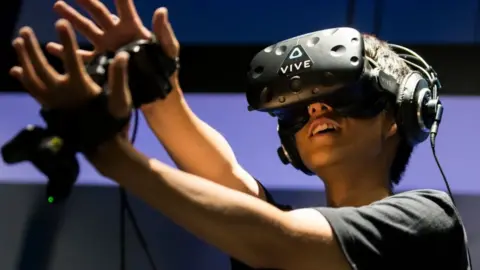Why might Google want to buy part of HTC?
 Reuters
ReutersA Google takeover of at least part of HTC's business has been rumoured for some time.
Now that the Taiwanese firm has announced its shares are being suspended, speculation is rampant that an agreement has been struck.
HTC made the first ever Android handset - the Dream - and is rumoured to be the manufacturer of one of the US firm's Pixel 2 models, which is set to be announced next month.
But Google has already struggled to integrate one phone-maker, Motorola Mobility, and it's not clear why it would want to repeat the experience.
Yes, HTC has proven itself capable of developing unusual features - such as the squeeze-to-take-photos design of its recent U11 - but it has repeatedly failed to launch a bestseller. And does Google really want to own HTC's factories at a time when others, including Apple, are happy to outsource production?
An alternative deal could involve buying HTC's virtual reality business.
 Getty Images
Getty ImagesIts high-end Vive headset is reportedly outselling Facebook's Oculus Rift rival by a margin of nearly two-to-one - albeit with still modest numbers - and is recognised by many as the superior system.
Moreover, Google already poached Vive's chief designer Claude Zellweger away at the start of the year for its own Daydream VR effort.
Many believe virtual and augmented reality (in which graphics are mixed with real-world views) have the potential to revolutionise how we interact with computers, but only after further huge sums are invested in R&D.
Cash-strapped HTC might thus be incapable of making the most of its early lead, while Google may be willing to dig deep to give itself every advantage possible against Microsoft and Apple, which are also eyeing the space.